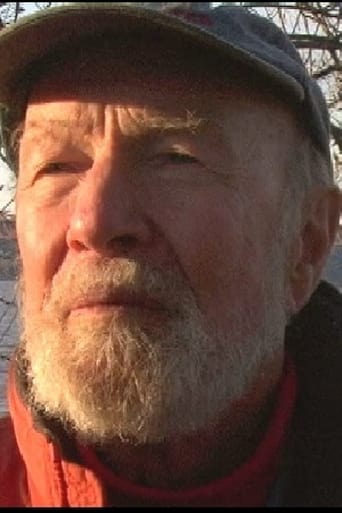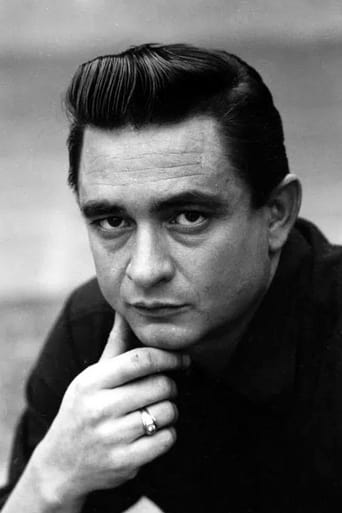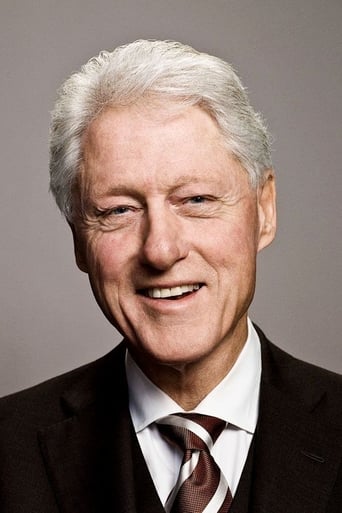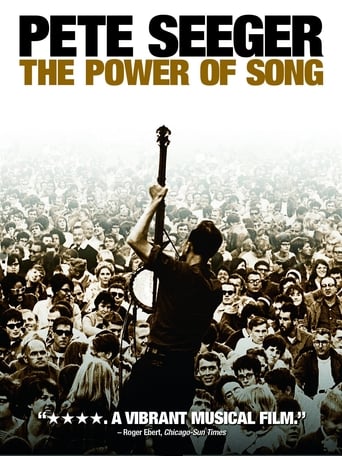
Pete Seeger: The Power of Song
September. 14,2007 PGInterviews, archival footage and home movies are used to illustrate a social history of folk artists Pete Seeger.
Similar titles

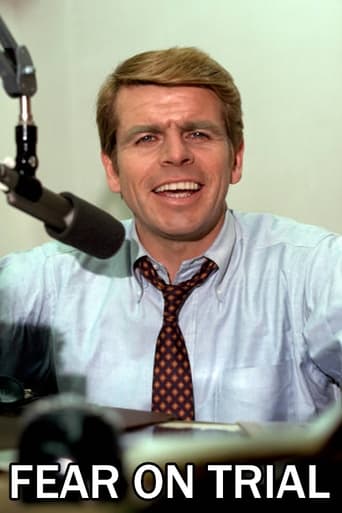
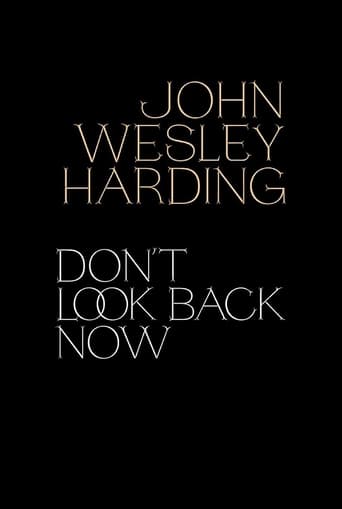

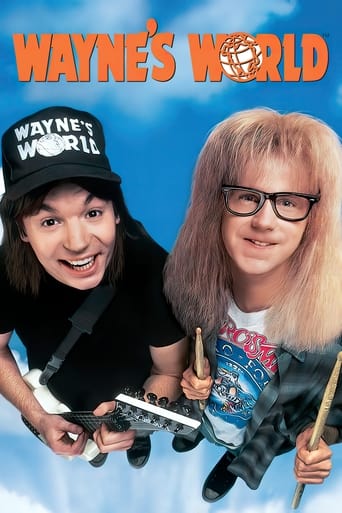
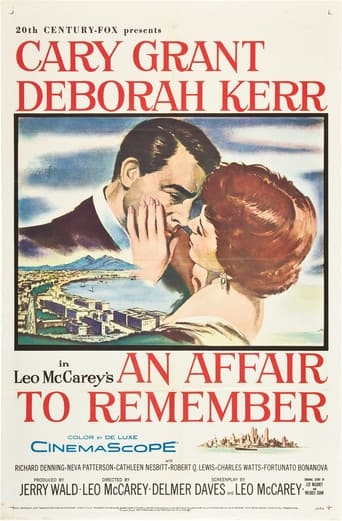
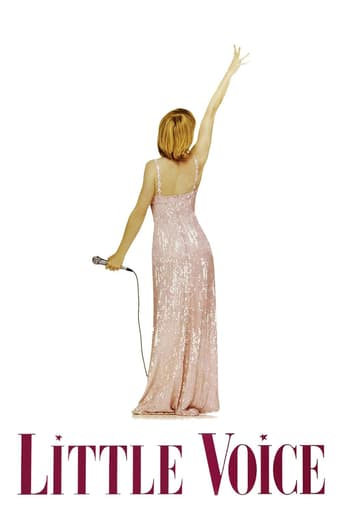
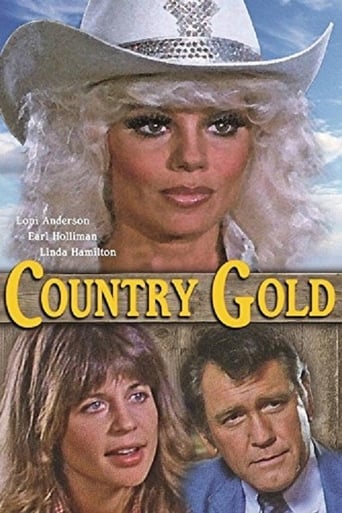
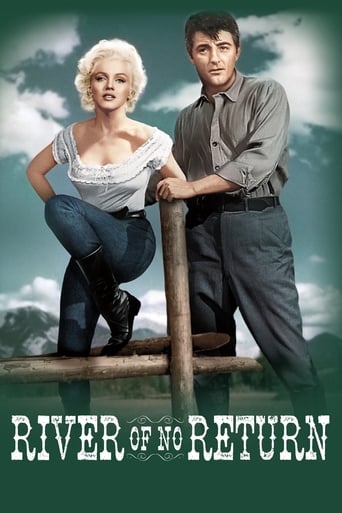
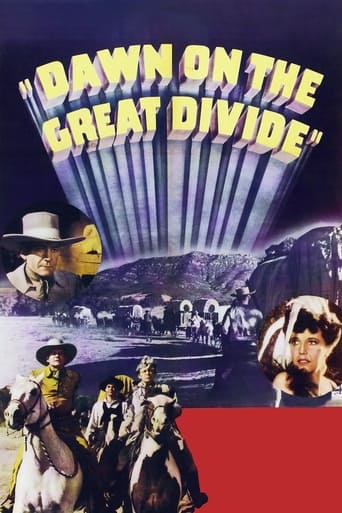
Reviews
Simply A Masterpiece
People are voting emotionally.
The performances transcend the film's tropes, grounding it in characters that feel more complete than this subgenre often produces.
There is, somehow, an interesting story here, as well as some good acting. There are also some good scenes
Pete Seeger: The Power of Song is a documentary directed by Jim Brown. Pete Seeger was a truly great man. He was an icon of folk singing and activism in the 20th Century and well into the 21st. He never stopped singing, and he never stopped fighting for freedom, democracy, and a better and cleaner world.Any biographic film about Pete Seeger would be interesting, but this documentary is extremely well crafted and truly fascinating.Pete was alive when the film was produced, so director Brown was able to interview him extensively. We also get interviews with Pete's family and his friends. These included Joan Baez, Tom Paxton, and Johnny Cash. Also, we see plenty of archival footage, including Pete testifying before the infamous House Un-American Activities Committee, and Pete accepting the National Medal of Arts at the White House.We watched this film at home on DVD. The copy we own is part of the American Masters series, and contained a CD of Pete performing about two dozen songs.If you love folk music and progressive struggles, this is a must-see movie. If you don't like folk music, but you love progressive struggles, you should still see it. If you don't believe in progressive struggles, the film will make you angry. Pete made plenty of people angry, but he made life better for millions and millions of people. Some of us will never forget him.
Pete Seeger: The Power of Song is a moving tribute to an American icon and to the power of his music to inspire us. Writer and director, Jim Brown, whose 1982 documentary The Weavers: Wasn't That a Time is one of the best films of the 1980s, scores again with his biography of folk singer Pete Seeger, now almost 90. Seeger is famous both as a solo artist and a member of such groups as The Almanac Singers and The Weavers who became a popular success in the 1950s with songs such as "Goodnight Irene", Tzena, Tzena, Tzena", "Kisses Sweeter Than Wine", and "So Long, Its Been Good to Know You". Even at the height of The Weavers popularity, however, Seeger never considered himself a commercial artist and even left The Weavers at one time because they appeared in a cigarette commercial.The film includes some very moving concert footage in both large and small venues as well as interviews with such folk music legends as Arlo Guthrie, Bruce Springsteen, Tom Paxton, Joan Baez, Bonnie Raitt, Natalie Maines of the Dixie Chicks, Mary Travers and Bob Dylan. It is Dylan who opens the film by asserting that he has never met another performer who is as skilled in encouraging an audience to participate. The documentary, however, is more than just good music and talking heads. Brown allows Seeger to tell his own story in his down-to-earth, plain spoken manner, and he reminisces about his life, at one time describing how a concert by Paul Robeson in Peekskill, New York in the 1940s turned into a life threatening riot. Pete also introduces us to his family including brothers, sisters, sons, daughters, grandchildren and especially Toshi, his devoted wife of sixty two years who supported him throughout the years by raising the children while he was pursuing his career.Both strong environmentalists, Pete built his log cabin in Beacon, New York with the help of family and friends and he continues to work the land today; chopping wood and hauling water. Seeger's story, however, is not just about folk music, but is about his passion for social justice and his political involvement with left-wing groups. A graduate of ivy-league schools, Seeger was first attracted to politics while in college. He joined the Communist Party in the thirties when millions also turned to the Party to provide answers to the deepening depression (he left it in the fifties). His rationale for joining the CP is understandable if a bit thin, saying that, like him, they supported unions, were against Jim Crow, and stood for peace. His association with the CP was to haunt him in later years, however, and visits to Russia and North Vietnam alienated many of his supporters. It was his invoking the First Amendment before the House Un-American Activities Committee in the early 1950s, however, that resulted in his being blacklisted on television for 17 years.Unable to earn a living, he sang to young grade school students and in colleges and universities until the blacklist was broken by the Smothers Brothers who invited Pete to sing on their weekly show. After a long battle with CBS, he was allowed to sing his anti-Vietnam War song "Waist Deep in the Big Muddy", not one of his best efforts. Working with Alan Lomax at the Library of Congress and singers Woody Guthrie and Hudie Ledbetter (Leadbelly) Pete traveled the country and the world collecting material, returning to America to promote its musical heritage and sparking the folk music revival of the 1960s with such songs as "Turn, Turn, Turn", "The Hammer Song", "Where Have All the Flowers Gone?", "Wimoweh", and the civil rights anthem "We Shall Overcome", a song which inspired Martin Luther King.Honored by the Kennedy Center for outstanding musical achievement, music and justice are Seeger's passion. He says that music should not be used just to forget our troubles, but to help us to understand and do something about them and he has popularized union songs, freedom songs, songs about workers, songs about justice, as well as Woody Guthrie's indelible hymn to America, "This Land is Your Land". Seeger has also been active on issues of the environment and his decade-long campaign to clean up the polluted Hudson River produced remarkable results, even though many said it was impossible. Pete Seeger: The Power of Song can be accused of being hagiography, but it is a long overdue tribute to a man who contributed so much to the quality of our lives and who suffered greatly for his political beliefs.
Even if you consider yourself not the greatest maven of (sic)"folk music", Pete Seeger:The Power Of Song' is a must see. We find the multi layered Mr. Seeger the perfect subject of this, or any other documentary of it's kind. We delve into the young Seeger, and what turned him onto the wide world of American roots music,and how he's become one of the last great folk troubadours (after Woody Guthrie,whom he lived & worked with in the late 1930's). Jim Brown's film features a treasure trove of concert footage, including some rarely seen footage with his most famed group, The Weavers (the only group to have been blacklisted under the H.U.A.C.). The screening I attended had some audience members who had seen Seeger several times, and was familiar with the songs (I heard some of the audience singing along with the songs in the film,and wasn't even inclined to silence them). This is a film that is well worth seeking out by fans of old school folk music, political activists & environmentalists. See this movie!
Oberlin College, 1959. Pete Seeger (who?) was giving a concert. Nothing else for me to do. So I went. This was one of the first times I'd gone to a live musical performance, so perhaps that's why I was totally blown away. Probably not, though. No, I don't remember a single one of the songs he sang. What I do remember, though, is the way I felt -- we all felt -- as members of an auditorium-wide family. We listened; we sang along, we played the "Divide the audience into groups and sing rounds" game. Or maybe the men sing one verse and the women sing another. It was fun. It felt good.I don't think anyone there thought that we were participating in an historical movement. I know I didn't. But we were. The perspective just wasn't there for us at that time.This movie provides the perspective. As a performer, Seeger's musicianship is impressive. His reedy voice delivers lyrics strongly and convincingly. But there's more. He has said that rather than have the audience sit attentively, quietly and respectfully, listening to him sing, he wants to hear them sing. He helps them sing. He cajoles, tweaks, shames, damn near forces them to sing.While this documentary is not a sermon, Seeger himself has an agenda and it is shown. He has been called "An Inconvenient Artist." His music is good music. It has been given credit (or blame) for influencing several generations of young people to ask the difficult questions about their government and themselves. Two small "bits" that I especially enjoyed were Arlo Guthrie on dealing with pamphlets and why the FBI was responsible for the renewed interest in Folk Music in the 50's and 60's.The movie, like Seeger, is entertaining. The time (90 minutes) will pass all too swiftly. It might be difficult to find (Art Houses and such). Take the time to look for it and go see it. I predict that you will be glad you did. Trust me: have I ever lied to you before?
Top Streaming Movies













